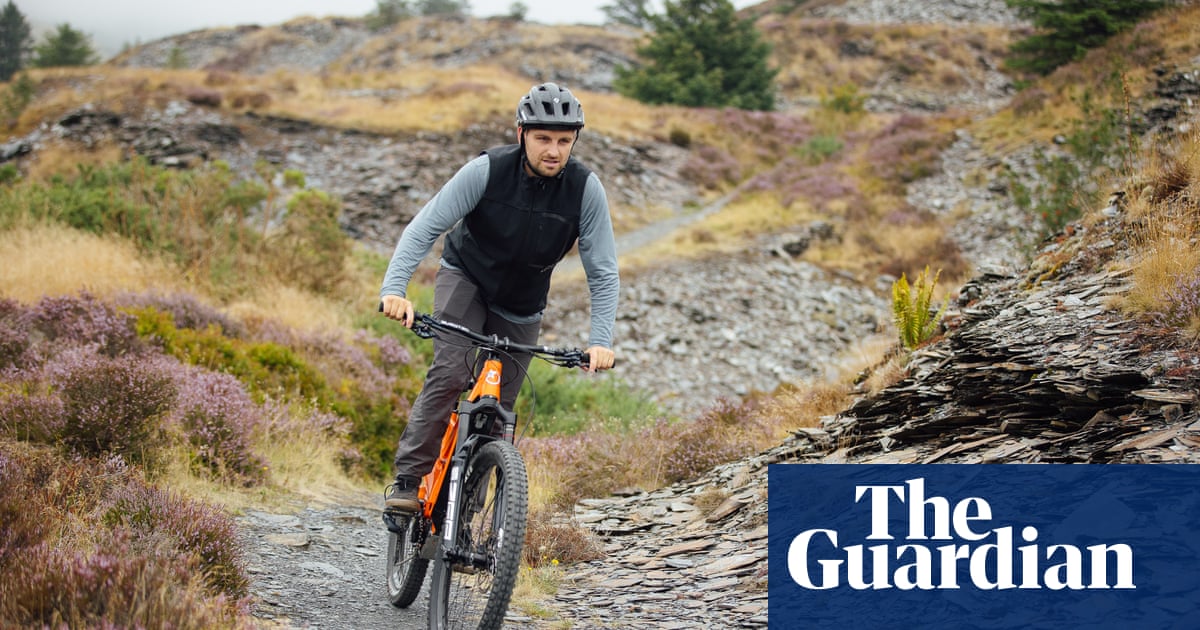
The government is considering funding an “opportunity to try” scheme for electric cycles at holiday and day trip destinations and events as a way to increase the uptake of electric cycles in England.
E-bikes provide a boost from a motor while a rider pedals, and research suggests they can help replace car trips for short journeys, with added health benefits. While Bicycle Association data suggests e-bike sales grew 67% last year during the pandemic, the UK still lags far behind its European neighbours in uptake.
The Guardian understands a business case report has been developed for the Department for Transport (DfT) based on the “opportunity to try” model, the idea being that once people experience riding an e-bike, they are far more likely to buy one. A similar scheme in Switzerland is credited for a Swiss e-bike boom.
The government will seek a delivery partner “to purchase all the bikes and run all the events”, with a scheme put in place in summer and autumn, although the locations have not yet been revealed.
Details of an e-bike support package, originally announced last year as part of a £2bn active travel fund, will be formally released in June. Along with likely grant funding for opportunities to try them, this could also include an e-bike purchase subsidy, loan schemes, the government’s response to a Highway Code review, and details of a new walking and cycling body, Active Travel England.
The Bicycle Association’s executive director, Steve Garidis, said: “I certainly still think this model has a lot going for it in terms of introducing new people to e-bikes, in an environment in which they may be more comfortable to try a new activity, and which can form a fun part of a holiday. There is a direct benefit at the tourist location if this cuts short trips.”
Isobel Stoddart jointly organised a series of “have a go” e-bike networks in 2013 with Garidis, including in the Lake District, using a government grant. She said being able to try them at campsites, hotels and B&Bs where people were staying was “transformative – everybody came away with a smile on their face, regardless of whether they were novices, or lapsed cyclists”.
The former Labour leader Ed Miliband said he only became confident cycling last year after trying an e-bike on holiday in France, and has since cycled to work.
According to a 2019 Bicycle Association analysis, an e-bike grant in the UK could be more than twice as cost-effective as existing electric car grants at cutting CO2.
In France, recipients of e-bike grant schemes nationwide increased annual cycling distances on average from 200km (125 miles) to 1,400km, reducing car trip distances by 660km and CO2 output by 200kg each. Thirty-one per cent of users said they would not have bought an e-bike without the grant. While men make most cycling trips in France, e-bike schemetake-up was close to gender equal at 48% female.
The Guardian understands the government is also “quite keen” to fund local authorities loaning e-bikes to residents at low cost.
The cycling minister, Chris Heaton-Harris, said: “E-cycles could be hugely important to our goal of bringing non-traditional groups to cycling including older and disabled people. We are establishing a national e-bike support programme, which could include loans, ‘opportunity to try’ schemes, subsidies, or other financial incentives, using the learning from other schemes in the UK and abroad.”
A 2019 Deloitte report predicted e-bikes could help create tens of billions of additional bicycle trips in 2022, “doubling the number of regular bicycle users in many major cities around the world where cycling to work is still uncommon”. Separate research found that with a network of cycle routes, one in five people would cycle to work in England; with e-bikes it is more than one in four.












